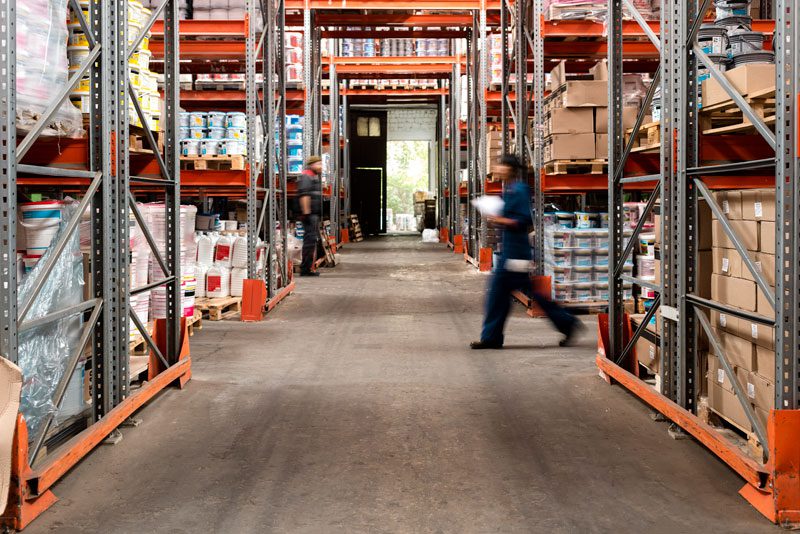SINCE 1988
203-546-7793

Choosing the right commercial warehouse for sale is a critical decision that can directly impact the efficiency and success of any business, especially as the global commercial real estate market is projected to reach an impressive $118.10 trillion by 2024, highlighting the growing opportunities in this sector. The features of a warehouse—ranging from location and layout to security and infrastructure—can either streamline operations or create long-term challenges.
Here are seven essential features to consider when looking for the ideal commercial warehouse in Newtown, CT, ensuring a sound investment for future success.
Key Takeaways
6 Tips for Negotiating the Best Price on a Commercial Warehouse for Sale
Frequently Asked Questions (FAQs)
Explore Commercial Warehouse for Sale Opportunities with Tower Realty Corp
Key Takeaways✔ Location and accessibility are crucial for efficient operations and reducing transportation costs when selecting a commercial warehouse for sale. ✔ The size and layout of the warehouse should align with current needs and allow for future growth. ✔ A well-maintained building with strong structural integrity ensures long-term durability and safety. ✔ Efficient loading and unloading docks can significantly enhance logistics and operational flow. ✔ Adequate parking and external space are essential for both staff and delivery vehicle management. ✔ Reliable utilities and infrastructure are necessary for smooth, uninterrupted warehouse operations. ✔ Robust security systems, including surveillance and access control, are vital for protecting inventory and personnel. ✔ Negotiating the best price involves researching market trends, assessing long-term costs, and leveraging the seller’s motivation. |
Location and accessibility are key features when choosing a commercial warehouse for sale because they directly impact logistics, operational costs, and delivery times. A well-located warehouse can streamline transportation and ensure products reach their destination quickly. Poor accessibility, on the other hand, can lead to delays and higher expenses.
The size and layout of a commercial warehouse for sale are critical in determining how effectively a business can operate within the space. A spacious, well-designed layout can accommodate growing inventory and facilitate smooth internal operations. It’s essential to select a warehouse that meets both current and future needs.
The structural integrity and condition of a commercial warehouse for sale directly impact its safety, longevity, and cost-effectiveness. A well-maintained warehouse minimizes the risk of major repairs and ensures the building complies with safety standards. Careful inspection before purchase is critical.

Efficient loading and unloading docks are essential for smooth warehouse operations. The number, size, and accessibility of the docks determine how quickly products can be moved in and out of the warehouse. Well-designed dock facilities help reduce wait times and optimize logistics.
Adequate parking and external space are important for managing both staff and commercial vehicle needs. Sufficient parking for employees, delivery vehicles, and trucks ensures that daily operations run smoothly without congestion. External space can also provide room for future growth or outdoor storage.
Reliable utilities and strong infrastructure are essential for the smooth operation of a commercial warehouse for sale. Power, water, internet, and HVAC systems need to meet the demands of the business. Poor utility infrastructure can result in operational disruptions and higher costs.
Security is a top priority when selecting a commercial warehouse for sale. A secure warehouse protects inventory, equipment, and staff from theft or damage. Proper security measures also help reduce insurance costs and liability risks.
Negotiating the best price for a commercial warehouse for sale in Newtown, CT, requires research, strategy, and timing. Here are six tips to help secure the most favorable deal.
Understanding the average price per square foot in the area is essential for making an informed offer. For starters, commercial real estate encompasses diverse asset types, varying performance based on supply, demand, and economic trends. Look at recent sales of similar warehouses to get a sense of the going rate. Having this information on hand can give buyers leverage during negotiations and ensure they don’t overpay.
Inspect the condition of the warehouse thoroughly before entering negotiations. If there are necessary repairs or upgrades, such as a leaking roof or outdated HVAC system, factor these into the price. Sellers may be willing to lower their asking price if significant repairs are needed post-purchase.
Sellers in a hurry to close the deal may be more flexible on price. If the warehouse has been on the market for a long time, or if the seller is under pressure to sell, use this to negotiate a better price. Timing can play a significant role in securing a favorable deal.
If negotiating on price proves challenging, offering more favorable terms can be a useful strategy. Flexible payment options or a quick closing timeline may appeal to the seller. Sometimes, these adjustments can lead to concessions on the price or other beneficial terms.
During negotiations, emphasize the long-term costs associated with the warehouse, such as utilities, taxes, and potential upgrades. Pointing out these ongoing expenses can help justify a lower purchase price. Sellers may be more inclined to negotiate if they understand the financial burden the buyer will face.
Involving a commercial real estate agent or a legal expert can make a significant difference in price negotiations. Professionals can identify potential areas for negotiation that a buyer might overlook. Their expertise ensures that the buyer secures the best possible deal while navigating legal and financial complexities.
The time frame for purchasing a commercial warehouse for sale can vary, but it generally takes between 60 to 120 days from start to finish. Factors such as financing, property inspections, and legal due diligence can affect the timeline. If the warehouse requires significant repairs or has complex zoning issues, the process may take longer. It’s crucial for buyers to work closely with their real estate agent and legal team to ensure a smooth and timely transaction.
Financing options for a commercial warehouse for sale include traditional commercial loans, Small Business Administration (SBA) loans, and owner financing. Commercial loans typically require a substantial down payment, often around 20-30% of the property’s value. SBA loans, on the other hand, may offer lower down payments and more favorable terms, especially for small businesses.
The surrounding neighborhood of a commercial warehouse plays a significant role in its suitability for business operations. Consider factors such as crime rates, proximity to major transportation routes, and whether the area is growing or declining economically. A thriving neighborhood can lead to increased property value and business opportunities, while a high-crime area may increase security costs. Additionally, check for local regulations or future developments that could impact the use of the warehouse.
When purchasing a commercial warehouse for sale, it is important to have comprehensive insurance coverage. Common types of insurance include property insurance, which protects against damage to the building, and liability insurance, which covers accidents or injuries that occur on the premises. Additionally, depending on the location and operations, buyers may need coverage for flood, fire, and natural disasters. It’s wise to consult with an insurance agent to ensure all potential risks are covered adequately.
Modifying a commercial warehouse for sale after purchase is possible, but it often requires approval from local authorities, particularly if the changes are substantial. Modifications such as expanding the building, adding more loading docks, or changing the internal layout may need to comply with zoning regulations and safety codes. It’s essential to work with contractors familiar with commercial buildings and consult local planning offices to avoid violations. Additionally, buyers should factor in the costs and time associated with any potential renovations or modifications.

Tower Realty Corp, based in Newtown, CT, offers a range of commercial warehouse properties designed to meet the needs of growing businesses. Whether you’re looking for a warehouse that enhances operational efficiency or supports future expansion, Tower Realty Corp provides expert guidance to help you find the perfect space.
Connect with our team today to explore available options and secure a commercial warehouse for sale that aligns with your business goals.